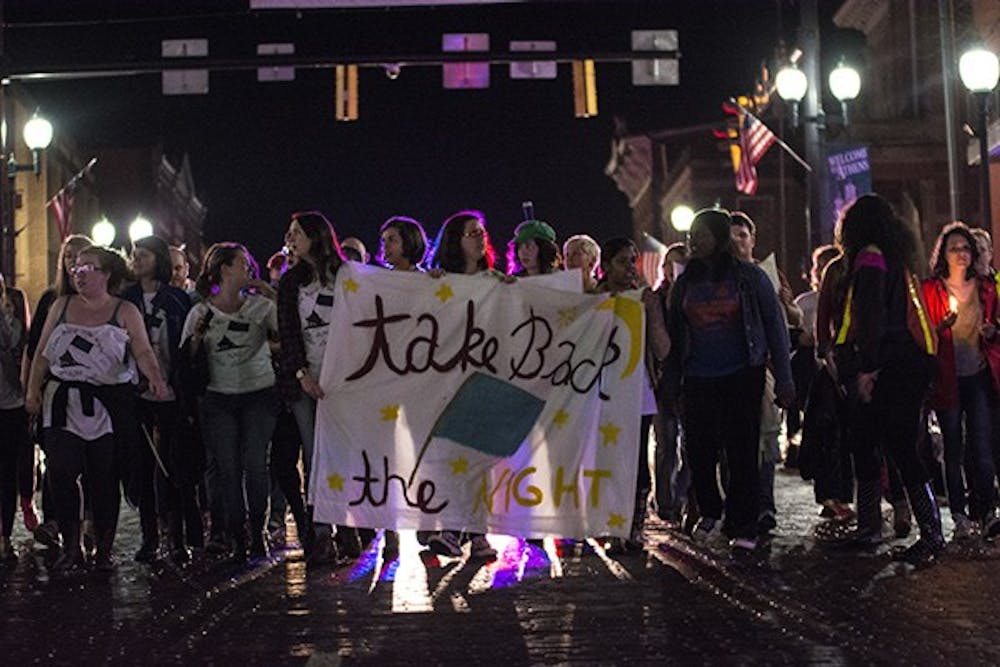Both men and women seek help with domestic violence issues locally.
In late 2014, the world watched in dismay as a video of former Baltimore Ravens quarterback Ray Rice surfaced via TMZ showing the NFL player fighting with his then fiancée, now wife, Janay Palmer, in an elevator at Revel Casino in Atlantic City. The video from February of the same year showed Rice punching, and seemingly knocking out, Palmer and dragging her body out of the elevator to the parking lot.
Rice was charged with third-degree aggravated assault in March, but the charges were dropped. He was initially suspended for two games by the NFL. The same day the full video leaked, Rice was released from his contract by the Ravens and suspended indefinitely by the NFL. He later appealed and won this decision in November and is now eligible to return to the organization.
Although this scandal played out on the front pages of tabloids, the central issue is one that is prominent in towns and households across the nation. Athens’ organization My Sister’s Place helped 82 people in the last year through the group’s resources, said director Kelly Cooke.
“I think what we realize when we're working with the community is that, for many, violence is an everyday reality and it's very often part of what people think happens in a relationship,” said Susanne Dietzel, director of the Women’s Center at Ohio University.
Dietzel said abuse happens to people of all genders, but it is more commonly seen in one.
“Domestic violence happens to men, it just doesn't happen to the extent that it happens to women. But I think that the barriers for reporting for men are perhaps even bigger than they are for women because it ties in with feelings with shame, issues with masculinities; also most services have been designed for women,” she said.
Cooke said she agreed with Dietzel.
“We primarily serve women in our programs, but I believe this is a reflection of both the difference in occurrence of relationship abuse among men and women and the societal stigma around men asking for help,” Cooke said.
Another high profile domestic abuse case escaped heavy coverage in mainstream media; Hope Solo, goalkeeper for the US Women’s Soccer Team, was charged with two misdemeanor counts of fourth-degree domestic violence stemming from an altercation with her sister and nephew in June in Washington state. Solo was not suspended or rebuked by the league.
"Based on (the) information (available), US Soccer stands by our decision to allow her to participate with the team as the legal process unfolds,” said Sunil Gilat, president of US Soccer, in a statement released in September. “If new information becomes available we will carefully consider it.”
The charges made against Solo were dropped in January.
Nate Shoemaker, a junior studying exercise physiology, said he had never heard of the Hope Solo case. He said, however, the Ray Rice case was “all over the headlines.”
“A female being charged with domestic abuse is more rare so you would think it would’ve made more headlines,” he added.
{{tncms-asset app="editorial" id="2f22c19c-a512-54c1-99fb-1122664e29e2"}}
Shoemaker said the inequality in publicity might have to do with the popularity of football compared to soccer.
Cooke said students have a number of resources on campus in order to deal with problems related to domestic violence. Not only is My Sister’s Place available, but students also have access to Counseling and Psychological Services, the Psychology and Social Work Clinic and the Survivor Advocacy Program.
Cooke added that although most of the people My Sister’s Place sees are women, men are equally as welcome to seek help from the organization.
“Unfortunately, we often turn people away from shelter due to a lack of bed space,” Cooke said. “But for a small town, we have a decent number and range of services.”
@w_gibbs
wg868213@ohio.edu






